mReview: Tesla Model 3 RWD 110 – The Benchmark
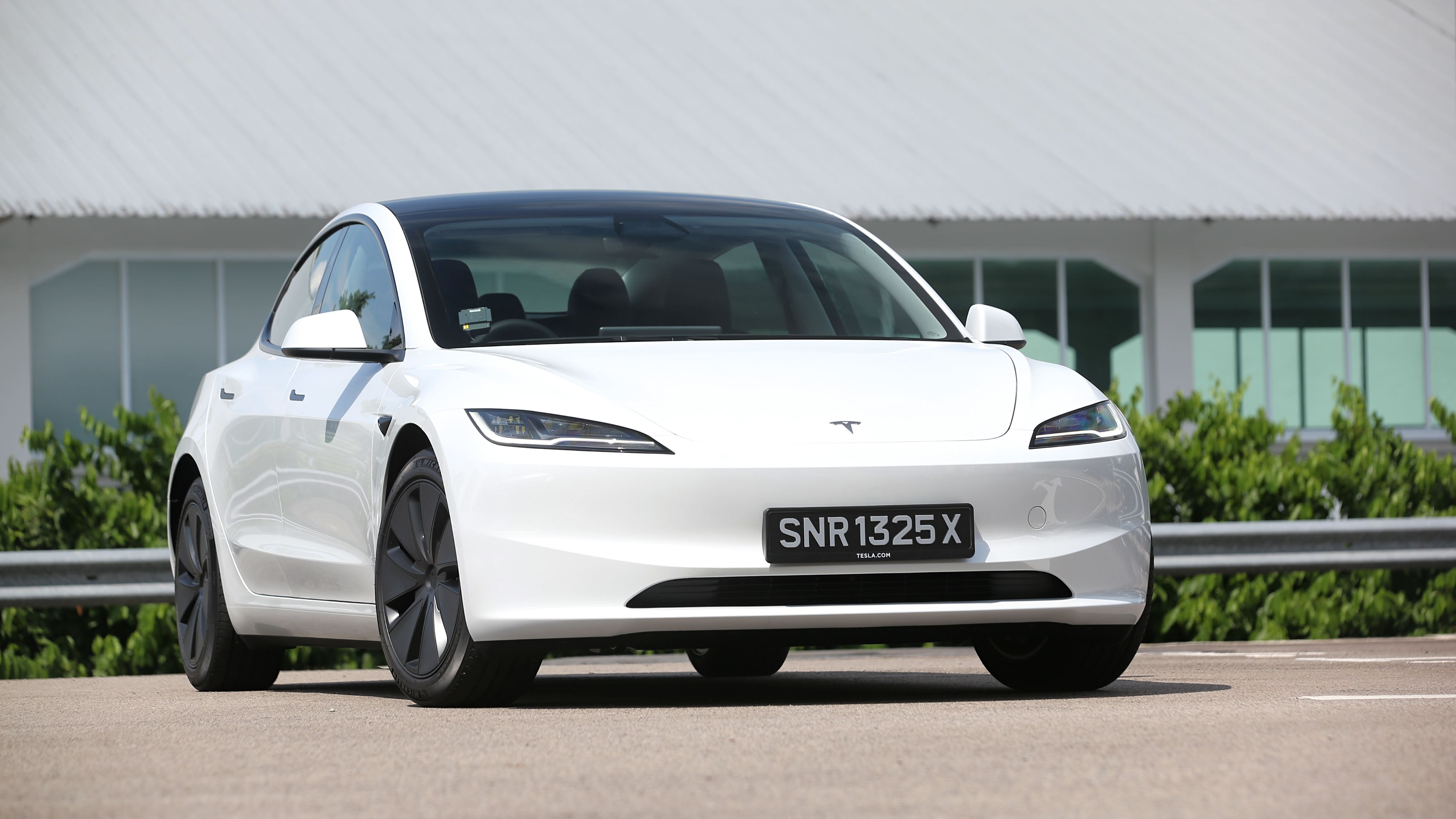
The Tesla Model 3 continues to be a leading light for all other EVs to follow, with intuitive tech and fancy features just the tip of a technological iceberg.
When people think of electric vehicles, one name instantly comes to mind, Tesla. The Tesla Model 3, often referred to as the "iPhone of the car world," has set a benchmark that many aspire to follow. For many, a Tesla is the electric car, and after a few days of testing one, I can understand why.
Much like an iPhone, the Tesla Model 3 puts a focus on sleek design and smooth functionality. Everything about the car, from its minimalist interior to its streamlined exterior, has an air of modernity, especially in this even smoother, facelifted design.
The user experience requires a bit of acclimation to, not unlike going to an iPhone from an Android, but it quickly becomes second nature. Once you're familiar with the controls, the intuitive nature of the car takes over, helping to make the driving experience a seamless one.
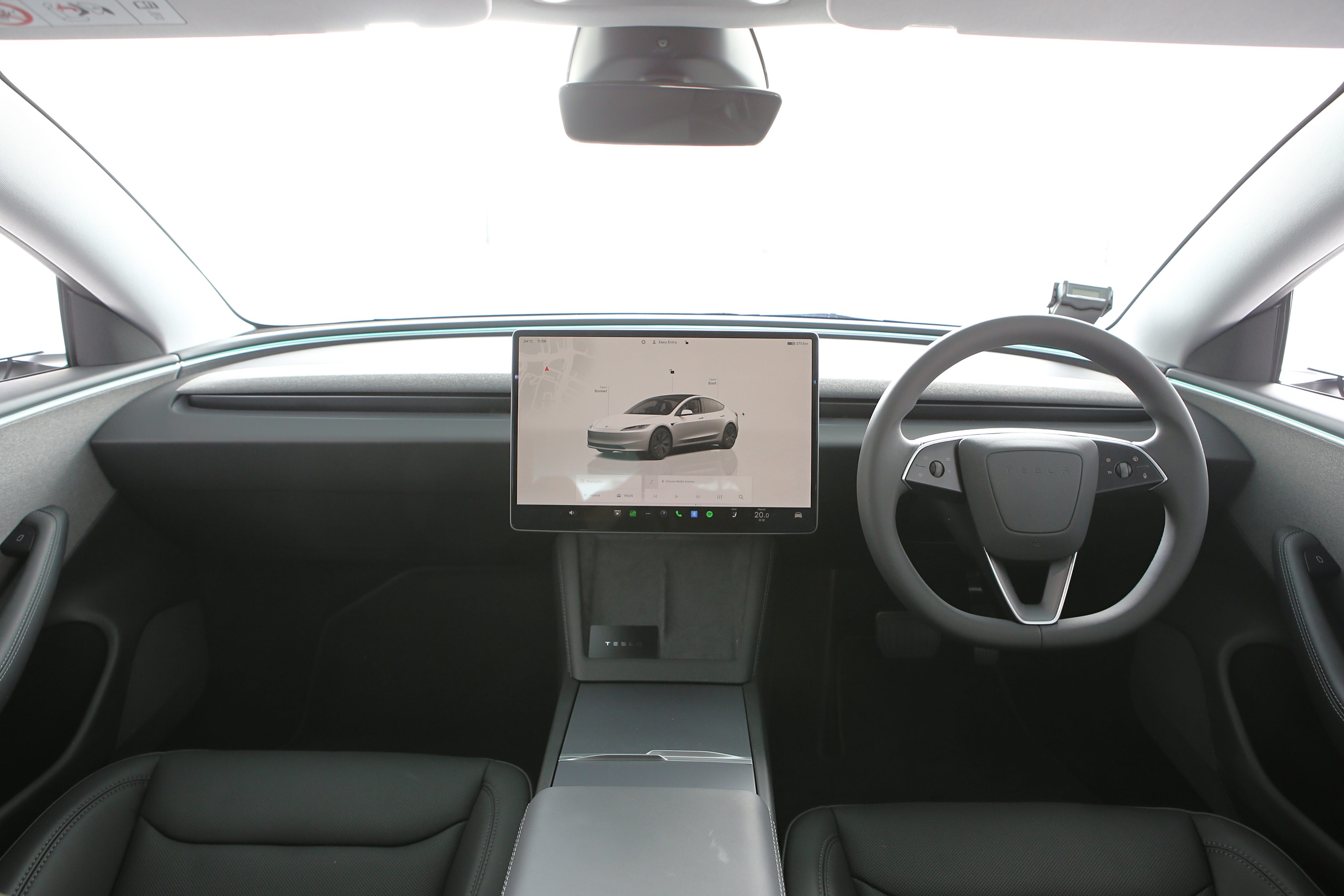 The famously minimalistic Tesla interior.
The famously minimalistic Tesla interior.
The variant in focus here is a Singapore special, the lowest-powered Model 3 anywhere in the world, purposely down-sized for it to fall under the Category A COE bracket. It features a single electric motor on the rear axle mated to a 60kWh battery for a combined output of 110kW (148hp) and 350Nm of torque.
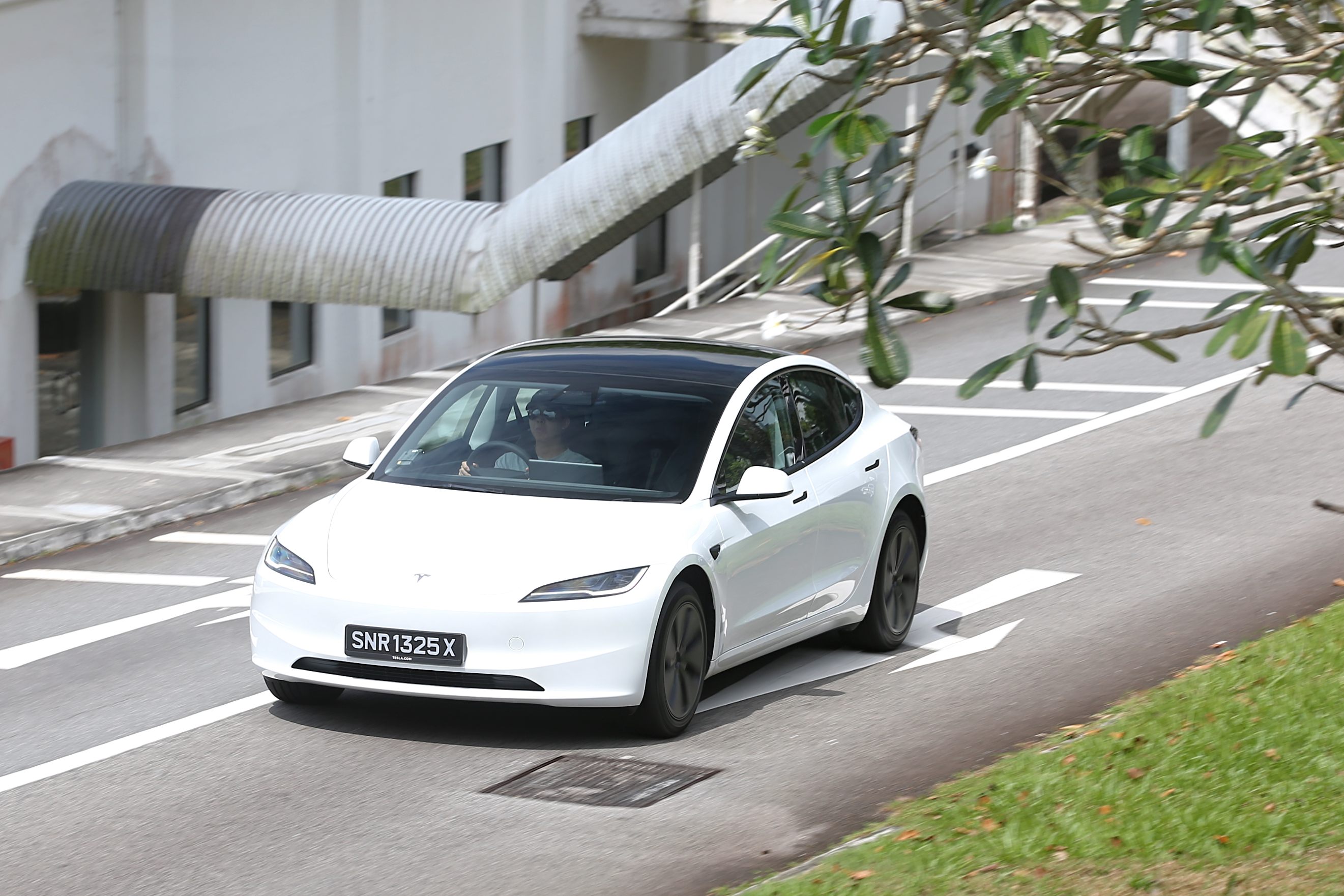
Interestingly, as only the power output figure is measured for COE, Tesla only detuned the power output but left the torque figure the same as in the Cat B Model 3. This 110kW Model 3 might not be as blisteringly quick as its bigger siblings but with its ample torque, power delivery remains more than sufficient, especially for driving around Singapore’s streets. Highway cruising is also taken care of easily and the Model 3 doesn’t feel like it loses momentum even at triple digit speeds.
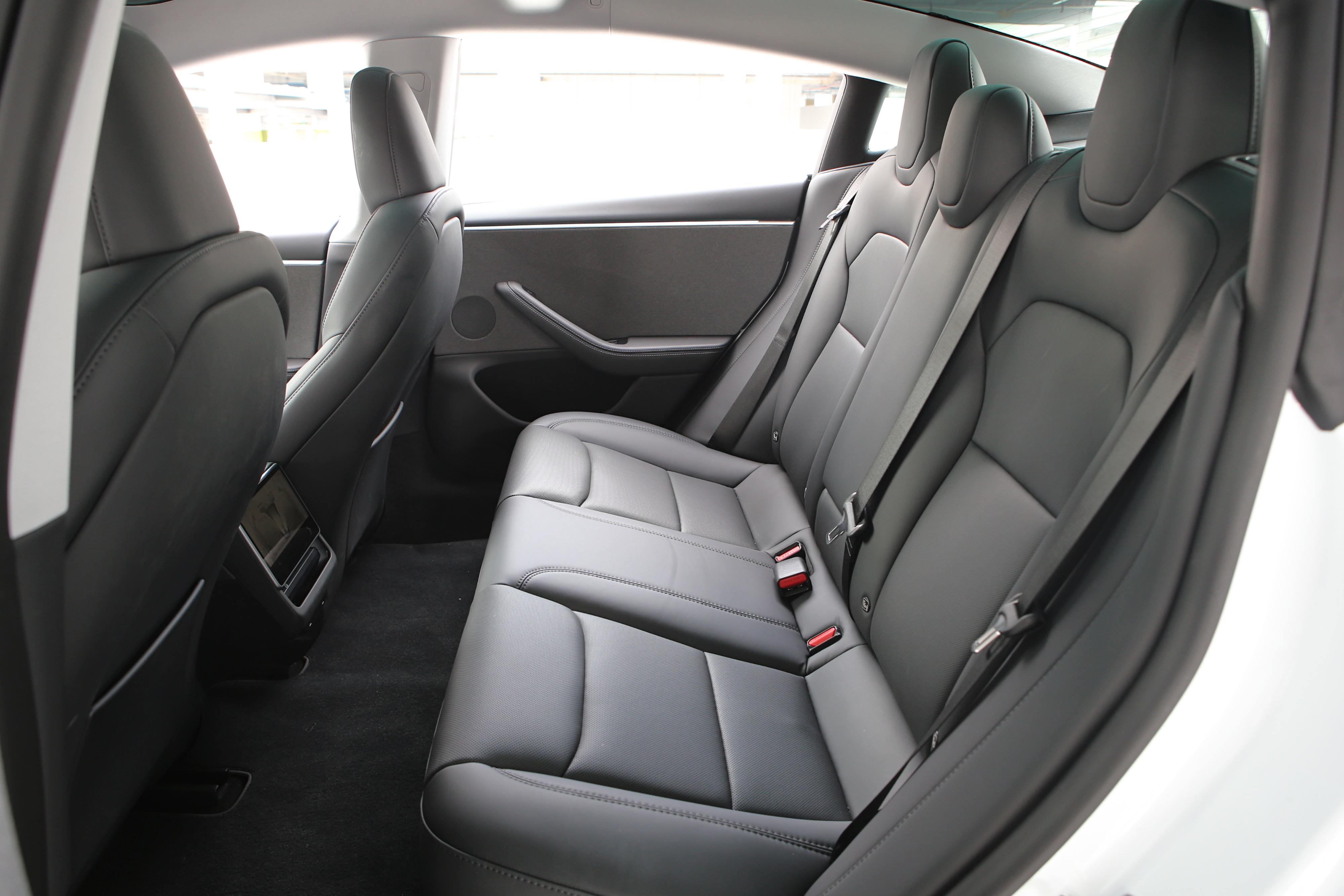 Simple but comfortable.
Simple but comfortable.
In terms of performance, the RWD Model 3 offers a compelling mix of power and control. Although the torque figures remain consistent with other variants (like the Cat B), the power has been tuned down slightly to meet the Cat A COE requirements. Despite this, power delivery remains more than sufficient for both city driving and highway cruising. Even at speeds around 120 km/h, the car doesn’t feel like it’s losing momentum.
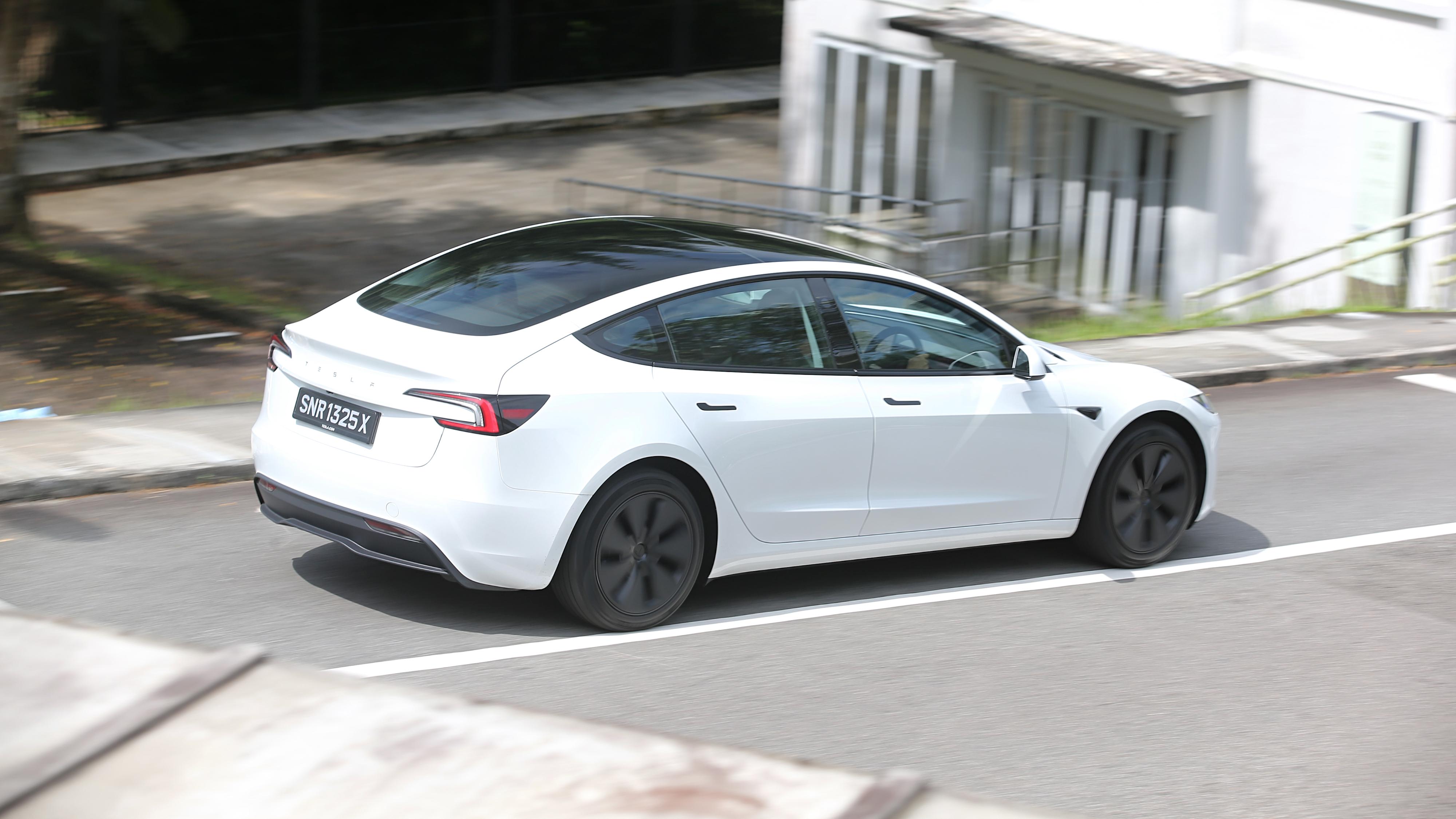
The ride quality of the Model 3 is comfortable with its Goldilocks suspension —neither too harsh nor too soft— ensuring a smooth ride. With the batteries mounted under the floor of the car, the centre of gravity is all the way down, helping the car feel glued to the road and keeping the body stable and level even when driven spiritedly.
The steering is rather uncommunicative but that’s to be expected from EVs nowadays. On the upside, the steering weight is adjustable and the car itself is easy to manoeuvre and place on the road.
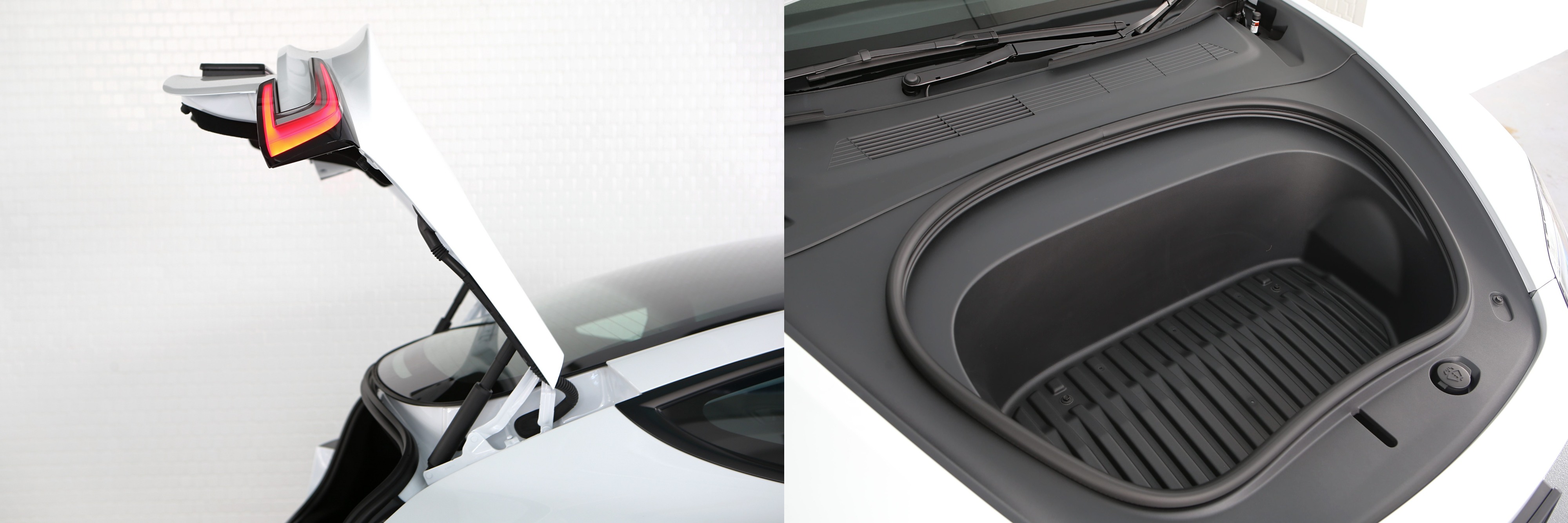 682 litres of space between the boot and frunk.
682 litres of space between the boot and frunk.
But the real benefits of the Model 3 are in its iPhone-like user experience. If you own one of these, almost everything is done through the accompanying mobile app. This includes everything from using a Supercharger to using your phone as the key.
This updated Model 3 also sports the swipe-on-screen gear “lever”. Shifting through drive and reverse is done with a mere finger swipe on the screen, something that takes a little getting used to but ended up working decently well. There are also backup gear buttons on the roof in case the screen fails.
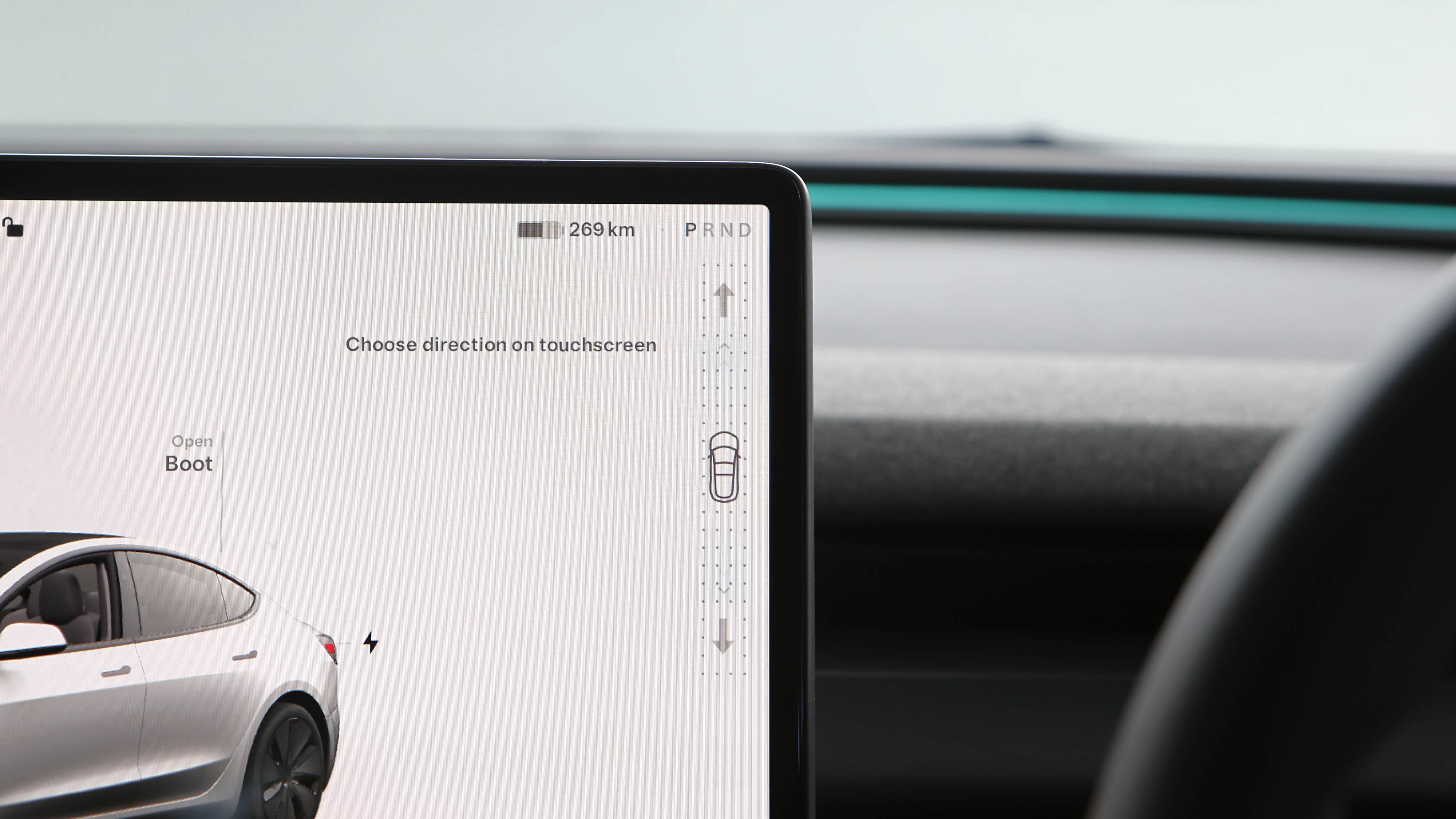 Far from my favourite gear selector but works surprisingly well.
Far from my favourite gear selector but works surprisingly well.
Tesla’s also don’t support Apple CarPlay or Android Auto, instead they favour using their own Google Maps-based system for navigation and dedicated apps like Spotify for media streaming. The benefit is that because the system is built into the car, every trip entered into the GPS shows you how much battery you’ll have remaining as well as locations of nearby Superchargers.
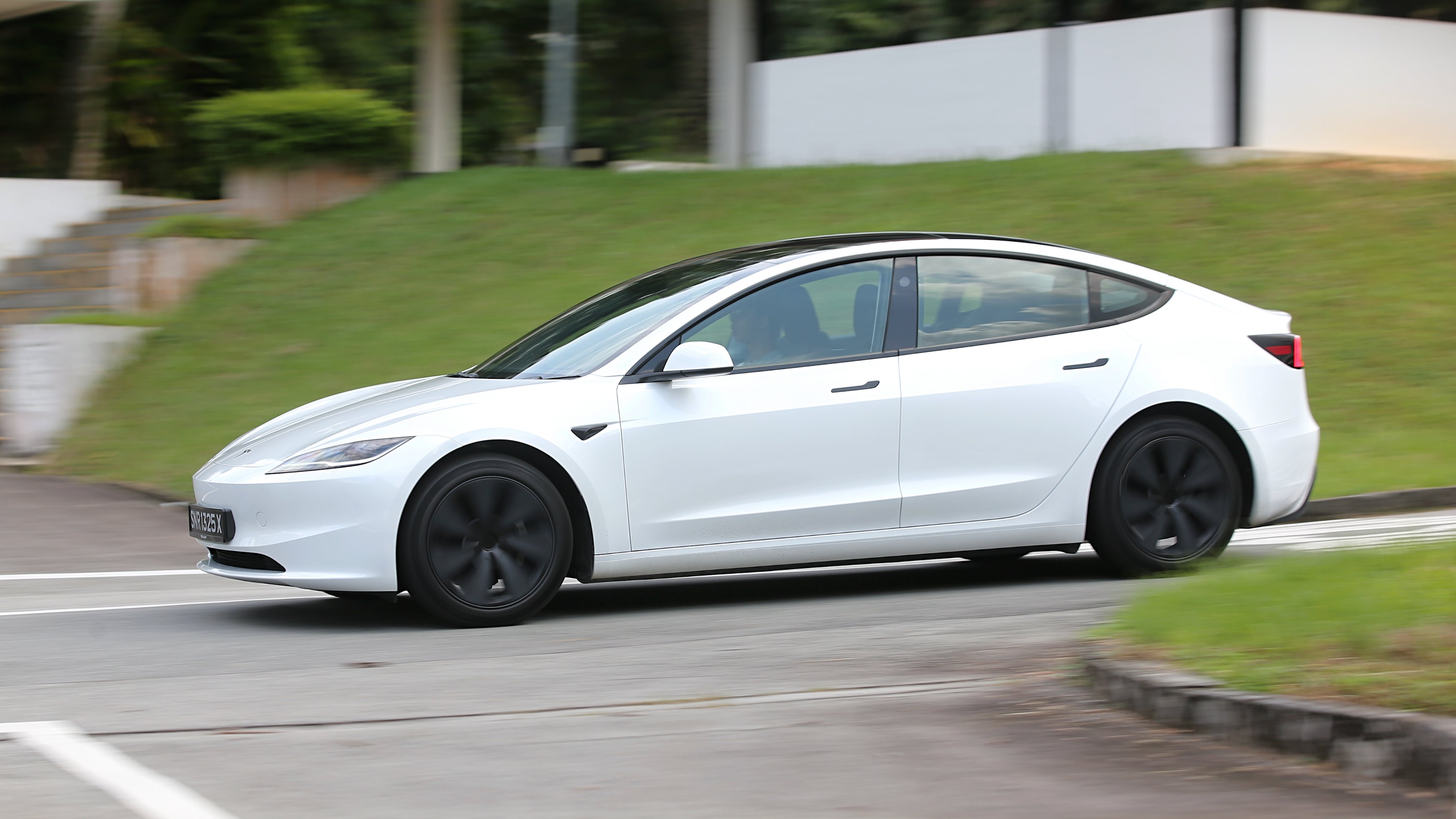
Of course, it’s not a Tesla story without mentioning one of their signature features, Autopilot. In Singapore, Autopilot is actually already available with navigation functionality too. This feature comes in handy, especially on our jammed-up expressways, where it can provide navigation instructions down to lane change suggestions to optimise your route. The system isn’t flawless though as it gets spooked pretty easily by lane-splitting motorcycles. But on clearer roads, the Model 3 is able to take itself even through tighter turns at higher speeds with confidence.
 Keep your iPad kids occupied with loads of entertainment options even in the back.
Keep your iPad kids occupied with loads of entertainment options even in the back.
The Model 3 is also rather unique in that unlike many other EVs, regenerative braking in this car is not adjustable, you’re locked in to the default full one-pedal drive mode. It’s a good thing then, that one-pedal driving in the Model 3 feels natural, and you quickly forget what it’s like to have to use the brake pedal.
While Mr Musk may do or say questionable things these days, there’s no doubt that his company has produced and continues to produce the benchmark electric vehicle. You see it in the way many brands have followed Tesla’s lead in terms of design and user experience. I’m still not a huge fan of everything going digital but if I had to pick, I’d go with the one who does it best, and for now, that’s a Tesla.
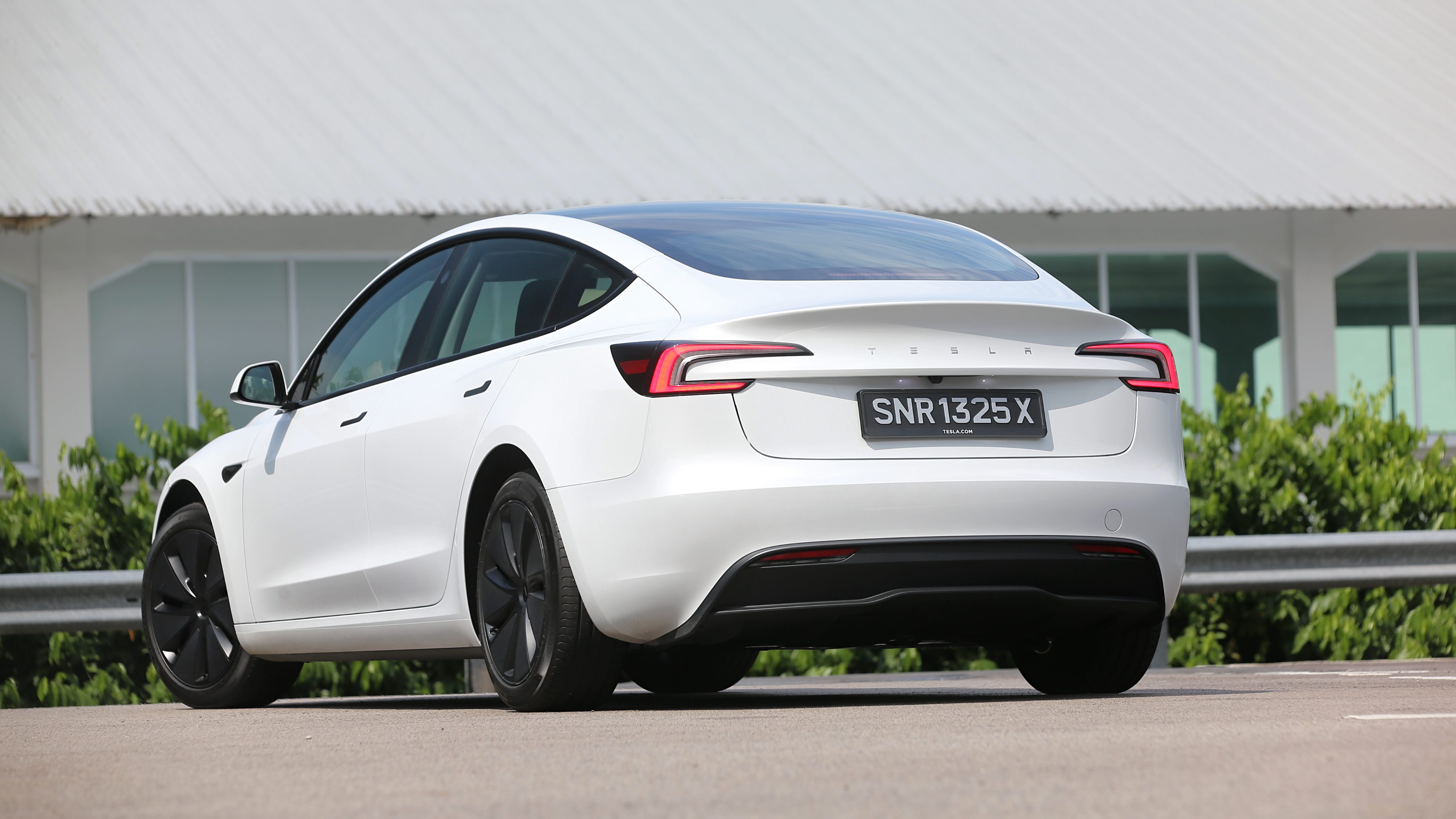
| Tesla Model 3 RWD 110 60kWh | ||
|---|---|---|
| Price (at time of publishing): $93,172 without COE | VES Band: A1 | |
Motor: Single electric motor |
Charging Rate: 170 kW DC, 11 kW AC |
Power & Torque: 110 kW (148 bhp) & 350 Nm |
Transmission: Single-speed |
Driven Wheels: Rear |
Consumption & Range: 13.1 kWh/100km & 513 km (WLTP combined cycle) |
0-100 km/h: 8.6 seconds |
Top Speed: 201 km/h |
Battery Capacity: 60 kWh |
|
Dimensions (L x W x H):
4,720 mm x 1,933 mm
x 1,441 mm |
Wheelbase: 2,875 mm
|
Cargo Capacity: 682 litres |
Read More: mReview: Tesla Model Y RWD - The New American Dream
Super App for
Vehicle Owners
Download the Motorist App now. Designed by drivers for drivers, this all-in-one app lets you receive the latest traffic updates, gives you access to live traffic cameras, and helps you manage LTA and vehicle matters.
